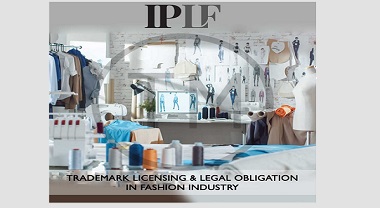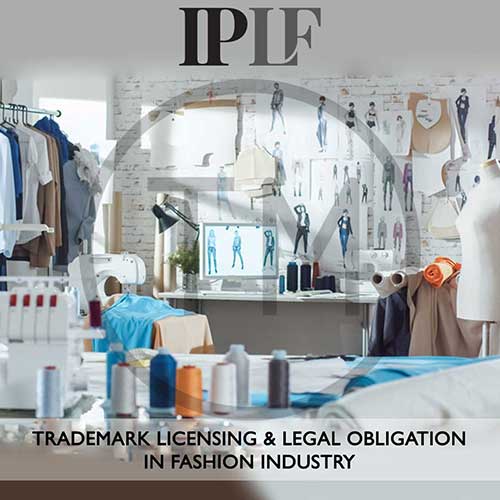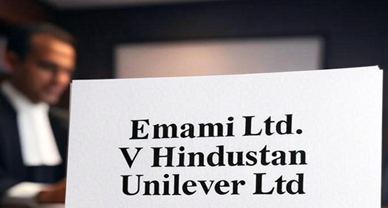Fashion Industry, Trademark Licensing And Legal Obligation
Most of the debate around the world for the past few months has been dominated by the application of Intellectual Property in the time of Covid-19. The debates range from the development of a vaccine to the effective and efficient system of making vaccines reach the common masses. Also, there were a lot of arguments with regards to the patent implication in the time of covid-19, whereby, countries, especially developing, including India, are contending that the patent rights for the vaccine should be waived. This write-up will not be dealing with the patent implication but on another side of the story that has been deeply affected by the pandemic but is often less discussed. Garment industries have seen a huge loss and millions of workers have been thrown out of the job due to less market amid pandemic. The fashion industries have seen a tremendous plunge in their market, leading to fewer sales.
 Trademark Licensing and Fashion Industry
Trademark Licensing and Fashion Industry
Now, how this matter can be directly affected by the purview of IP. These big fashion industries outsource their business to low-cost developing countries. While outsourcing the business, they rely upon trademark licensing, so that the firm or a local company could use their trademark and a market is established in a developing country as well. The difference between assigning and licensing should be made very clear. In the licensing of a trademark, the owner of the TM is keeping all the rights with him, contrary to the assignment, where the owner of TM is forfeiting the rights over his TM. Here, the company relies upon the licensing perspective, thereby keeping effective control over the product and manufacturing origin. Keeping this effective control has a lot of connotation attached to it. Primarily it is for the quality check and to ascertain the effective origin of the manufactured clothes. Previously, it was thought that licensing can confuse the consumer with the identity of the manufacturer with those who are selling. But gradually, the consumer was convinced with the notion and this licensing not only demarcated the manufacturing origin but also with that of controlled origin.
Obligations: Express or Implied?
In today’s world, this outsourcing is very common. We all know that in the fashion industry mostly the products are assembled from another country and manufactured in another. Due to this, various entities are associated from the start till the end until it reaches the consumer. Entities include textile and raw materials producers, transporters, vendors, etc. all these entities are somehow associated throughout manufacturing, delivering, and finally reaching the consumer. The fashion industry earns a lot of profit by the whole process only because of this trademark licensing which leads to the saving of the production cost. This licensing helps the company to authorize the other third party in the developing countries to keep a quality check on the product. What is more important to understand is the fact that this control of the manufacturing product and keeping the check of the quality must also extend to the issues of complying with the contractual obligation.
At the times of Covid-19, we have seen that a lot of fashion companies rescind the contracts due to shorter demands giving the reason of pandemic. This development from the side of the company has a huge impact on the workers and small local vendors who purely depend on the company for manufacturing. A worker or a small employee has less know-how to take any legal recourse due to a lack of resources. Also, one thing that fears the most is the suspension of the right/agreement if they went to take any legal recourse against the company since they have to work in the same company after the Covid-19 crisis. Too many workers are still out of work and facing difficulty in feeding the families. Nevertheless, the present condition does not hold for all companies, since there are companies that have respected all the contractual obligations that they were bound to, thanks to the public pressure and government request.
The trademark licensing covers the issues of the manufacturing quality product and should demarcate the origin of the product. This eventually should also cover the utmost respect of those contractual obligations concerning the workers and employees. It is difficult because there is no such evident legal backing that supports the treatment of workers within the purview of the trademark license. It’s the consumers that have made an image of the company and assume the quality of the product by its trademark. It will be difficult to assume how a company’s image, associated with its trademark will be idealized by its consumer if the company does not comply with such contractual obligations. If a company takes up the profit margin from the licensing of the trademark, it will improve the company’s global image, if they never tend to abandon their contractual obligations.
Author: Saransh Chaturvedi (an advocate) currently pursuing LLM from Rajiv Gandhi School of Intellectual Property Law (IIT Kharagpur). In case of any queries please contact/write back to us at support@ipandlegalfilings.com

 Trademark Licensing and Fashion Industry
Trademark Licensing and Fashion Industry


you’re truly a good webmaster. The site loading speed is amazing.
It sort of feels that you’re doing any distinctive trick.
In addition, The contents are masterpiece. you’ve done
a magnificent activity in this subject!
Comments are closed.